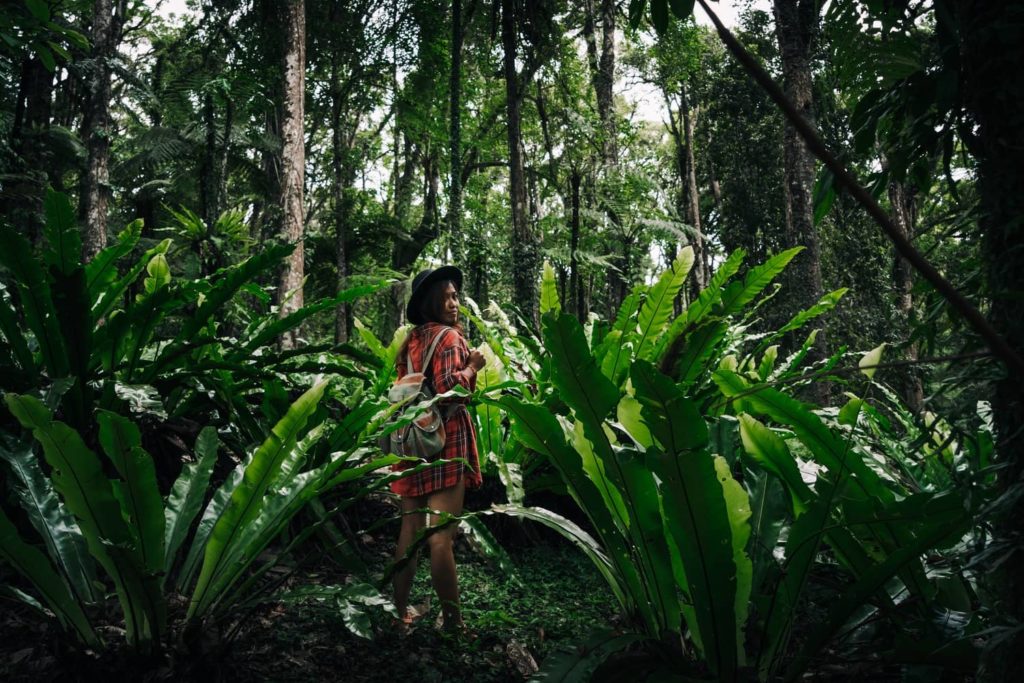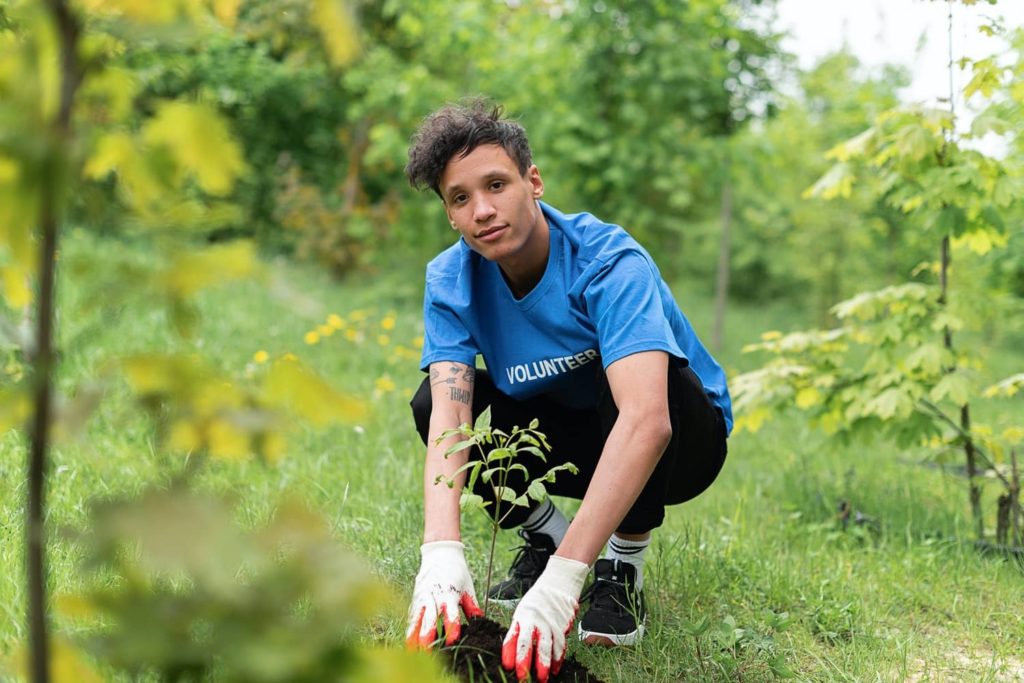As more and more of us become aware of humanity's impact on the planet, an interest in folding active environmentalism into every facet of life also increases. This includes trips and holidays. That's where ecotourism comes in.
With interest in ecotourism rising each year, it's probably a good time to explore what this popular phenomenon is all about. In this post, we'll answer, 'what is ecotourism and why is it important?'

Ecotourism in a nutshell
Let's dive into the world of ecotourism by answering some of the most common questions.
What is ecotourism?
Ecotourism is an umbrella term that refers to tourism that sustains the environment and improves the welfare of local people. It is a type of responsible tourism which aims to minimise any negative impacts on the environment and cultural heritage.
This type of tourism has been growing in popularity over the past few years, as it has many benefits for both tourists and local communities.
Why has ecotourism grown in popularity recently?
Ecotourism is an industry that has been growing at an exponential rate over the last few decades. The growth in this industry has been driven by many factors, one being the increasing need and growing awareness for sustainability. More and more of us now understand the need for conservation of natural resources and avoidance of environmental degradation.
This growing awareness has led to more people wanting to experience nature firsthand and can be used to teach people about environmental issues, without having to compromise on their environmental or economic footprint. Additionally, ecotourism is increasingly being seen as a way to learn more about different cultures while supporting local economies.
Why is traditional tourism typically not sustainable?
Tourism is a major contributor to the global economy, but it comes with a price.
Tourism has been around for centuries, but it has only become a global phenomenon in the last few decades. Tourism is now one of the most important contributors to economic growth and poverty reduction in developing countries. But tourism also poses many challenges for communities and the environment.
The main reason that tourism is bad for communities is that it can lead to over-development of small towns or villages, which can cause many negative effects on locals’ quality of life.
For example, people have been forced out of their homes because they are not able to afford rising rents from all the tourists coming into their neighborhoods. There are also reported problems with overcrowding, pollution, and rising crime.
This article goes into more detail about the harm that traditional tourism is causing.

What are the benefits of ecotourism?
Some of the benefits of ecotourism include:
- Ecotourism has a positive impact on local economy. As tourism becomes more diversified, businesses that are directly related to tourism - such as transportation, lodging, food, and attractions - become more prosperous.
- It helps protect natural resources. When tourists visit natural areas and ecosystems, they are more likely to conserve these resources because they understand the importance of them.
- It promotes social and environmental awareness. Through ecotourism, people can learn about the importance of conservation and find ways to help protect the environment.
- It builds relationships between people and nature.
Are there any drawbacks to ecotourism?
There can be some drawbacks to ecotourism.
For one, ecotourism can be detrimental to local economies if the local population is not compensated properly. Additionally, ecotourism can have a negative impact on the environment if the practices of the incoming tourists themselves are not sustainable.
Overall, ecotourism has many benefits that outweigh its drawbacks. As long as tourists are respectful of the environment and do not damage local ecosystems, ecotourism should be a positive trend that continues to grow in popularity.
What are the top ecotourism trends of 2022?
In 2022, environmentalists predict that ecotourism will continue to increase in popularity, as more people become aware of the benefits of travelling in an environmentally friendly way.
Some popular ecotourism trends that will be prevalent in this year include eco-adventure trips, wildlife safaris and plant-based vacations.
Furthermore, interest in ecotourism has resulted in major hotspots of interest forming throughout the world, with conservation groups investing millions into preserving some of these territories. These areas include Yellowstone National Park, Machu Picchu and Galápagos Islands.

What are some of the different elements of ecotourism?
Ecotourism is itself an umbrella term underneath which there are a number of different activities and experiences. Some examples include:
Slow Tourism
Slow tourism is a tourism phenomenon that refers to tourism that is slower in speed than traditional tourism. Slow travel allows tourists to travel to and experience a destination at their own pace, learn more about the culture, and make connections with the locals.
This type of tourism promotes sustainable practices by enabling tourists to connect with the local community and support local businesses over a longer period of time.
Additionally, slow tourism encourages tourists to avoid air travel and instead reach their destinations using overland options.
Eco-lodging
Eco lodging is a type of accommodation that strives to be environmentally friendly. Many eco lodgings seek to reduce emissions, strive for energy efficient measures, and have stringent recycling programs. They may also promote sustainable tourism by promoting alternative travel practices such as hiking, biking, or using public transportation.
Eco-volunteering
Eco-volunteering is a practice whereby tourists take an active role in conservation and environmental projects during their travels. Occasionally, an eco-volunteering role includes breakfast and board. Some examples of eco-volunteering roles include:
- Tree planting
- Litter picking
- Beach cleaning
- Wildlife surveying
- Water conservation
- Education and outreach programmes
What are some top ecotourism destinations?
With interest in ecotourism growing, the number of destinations that are considered ecotourism destinations is also growing. There are though several destinations that have consistently been at the top of the list. The list includes:
- The Galapagos Islands
- Costa Rica's Volcán Irazú National Park
- Kenya's Amboseli National Park
- The Amazon Rainforest
- The Serengeti
Truth be told, whilst there will always be top ecotourism destinations, it is always worth keeping in mind that it is likely there are ecotourism opportunities much closer to home. Local nature reserves and environmental projects are always keen for volunteers. Perhaps you could become an eco-volunteer in your own neighbourhood?
Discover five countries that are great for ecotourism in this article by eco-accommodation firm Ecobnb.
How to spot greenwashing
Greenwashing is the practice of marketing products or services as environmentally friendly when they are not. With interest in ecotourism increasing, it is likely we'll see more and more greenwashing and individuals and organisations try to capitalise on the trend.
There is no single way to spot greenwashing, as it can vary depending on the product or company in question. However, some key indicators that may indicate that a company is using greenwashing tactics include using terms such as "environmentally friendly," "sustainably produced," or "low impact" without specifying any detail.
If you see claims of environmental friendliness, investigate the claims thoroughly. If there isn't any apparent evidence, do ask direct questions.
Find out more about Greenwashing with this handy guide from the BBC.

